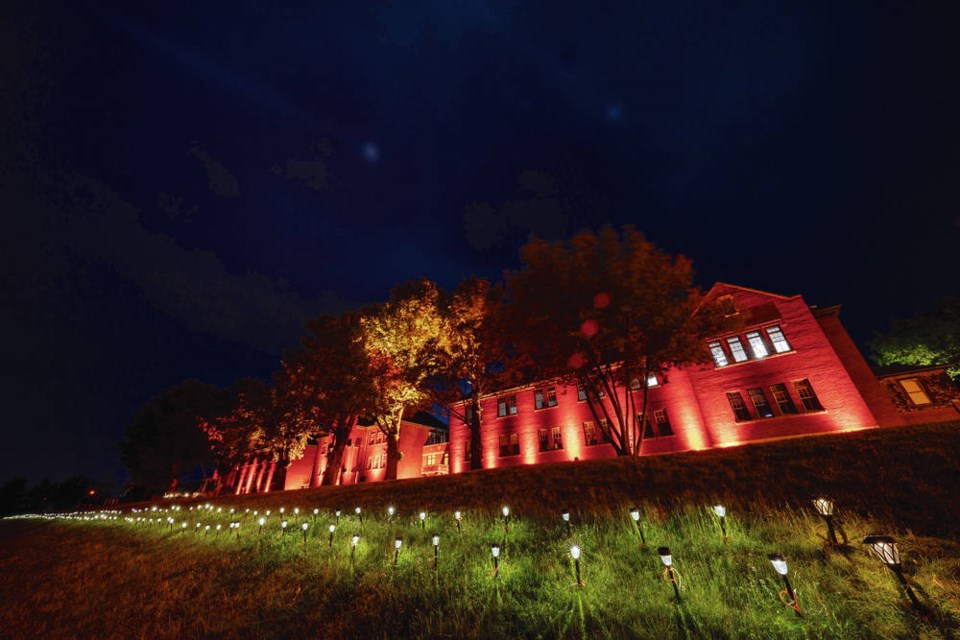Over the past month, churches across the country, mostly Catholic but also some Anglican, have been the subject of a wave of vandalism and arson. Several were burned to the ground, including two in the South Okanagan.
These acts of violence, for that is what they are, have followed the discoveries, still mounting, of unmarked children’s graves on the grounds of former residential schools.
To date, more than 1,100 such graves have been identified, and the grim search for more goes on. Some of the children were only toddlers.
As these revelations continue, the growing indignation in our country’s Indigenous population is fully understandable. There is every reason for anger and disgust.
More than that, there is a feeling that just as these childhood graves remained concealed for decades, Canadians today still bury the past.
In short, there is a demand that now at last the country must face its history, and accept accountability for what was done. Who would disagree?
The issue we have to deal with is how we are to move forward. Burning places of worship to the ground will not accomplish anything, other than fanning the flames of hatred.
Setting fire to totem poles, as happened recently on the Malahat, is likewise self-destructive madness.
If we are to get past this dangerous moment in the life of our nation, we should remember how others coped.
Dr. Martin Luther King, though provoked by endless acts of race-based barbarism and contempt, realized that violence would only beget more violence.
Certainly he called for, and led, numerous protest marches. But he insisted they be non-violent.
Yes, he paid the ultimate price for his bravery, when he was shot dead at the age of 39. Yet his leadership paved the way for the passage of the landmark Civil Rights Act in 1964.
The suffragette movement in Canada likewise achieved its aim of enfranchising women by wholly peaceful means.
The suffragettes were successful because the legitimacy of their claim could not be denied. They won their fight by out-arguing and wearing down the opposition. Violence would only have stiffened resistance to their cause.
It might be said that our Indigenous Peoples have waited long enough for recognition of past wrongs. Too long, indeed.
If emotions boil to the surface, who can blame them?
Yet the question before us is not whether, in extreme circumstances, violence is understandable. The question is whether, in the long run, it helps or hurts.
If we look around, to the United States and other countries, there is widespread splintering, along ethnic or religious lines.
Communities that were once in harmony are increasingly divided. Public dialogue is becoming ever more accusatory and inflamed.
No doubt the rise of the internet and social media has played a part. In response, the Canadian government recently carried legislation through the House of Commons, with the purpose of regulating content on social media platforms.
This is of concern, because we are moving toward a form of state-sponsored censorship that can only limit free speech.
But this is what happens when destructive sentiments replace respectful civic discourse. For every action there is an equal and opposite reaction, and differing viewpoints are driven further apart.
A very difficult period lies ahead. There were, all told, 139 residential schools in Canada. Only a handful of the sites have so far been probed.
It seems certain that many more unmarked graves will be found as the search expands.
How we respond will have long-term affects on our country.
We can do no better than heed the advice of Perry Bellegarde, outgoing National Chief of the Assembly of First Nations: “I believe in processes that unite rather than divide. Violence must be replaced by turning to ceremony, and all that our old people taught us about peaceful co-existence and mutual respect. Thoughtful dialogue, not destruction, is the way through this.”
- - -
To comment, email a letter to the editor: letters@timescolonist.com



